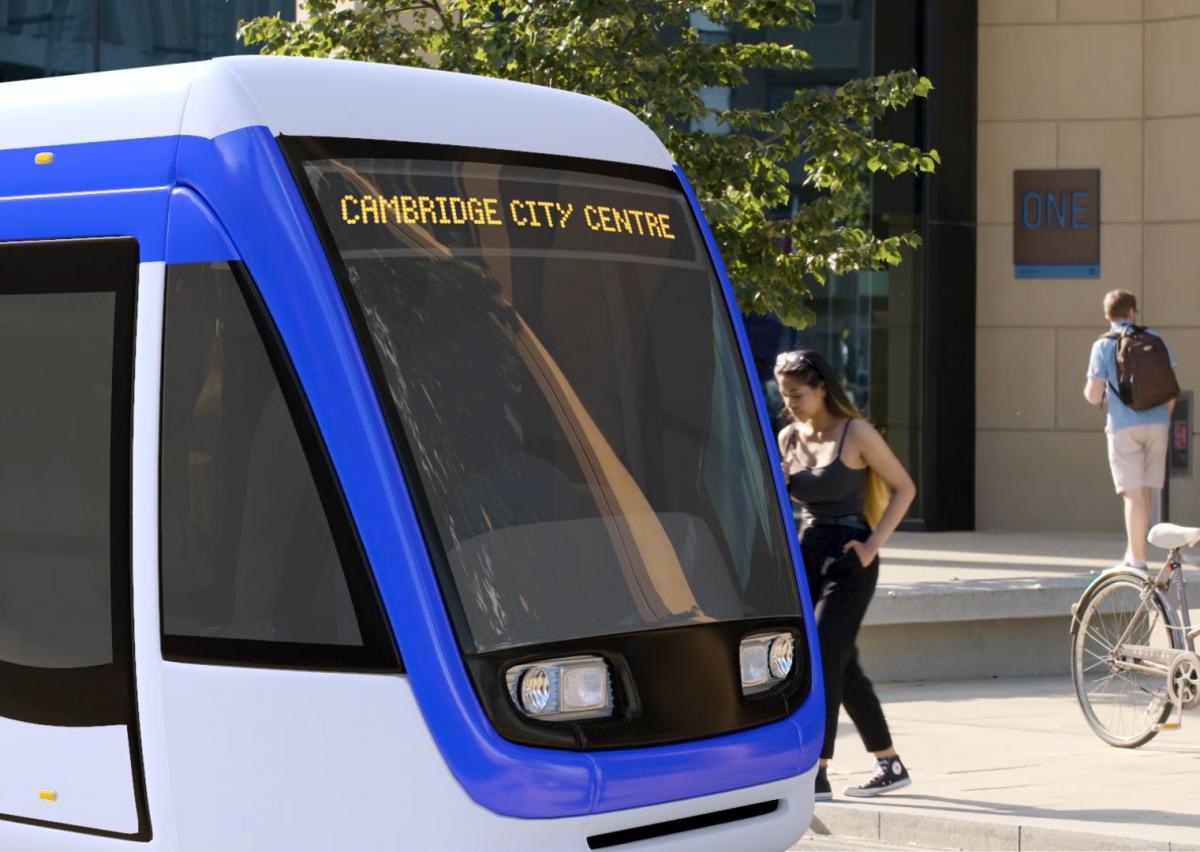20.03.19
‘Compelling case’ put forward for £4bn metro network for Cambridgeshire
There is a “compelling case” for a metro scheme for Greater Cambridge after a feasibility report has claimed it could create 100,000 jobs and 60,000 new homes, but could cost £4bn.
The feasibility study was commissioned by the Cambridgeshire and Peterborough Combined Authority (CPCA), and mayor James Palmer declared there was a compelling case for the new regional transport network covering 88 miles.
The so-called Cambridgeshire Autonomous Metro (CAM) will be designed as a “turn up and go” service and operate with zero-emission “trackless” metro electric vehicles.
The report said that at a top speed of 55mph, the metro will be able to cross the city of Cambridgeshire in under 12 minutes, and would make use of 7.5 miles of underground corridors beneath the city.

The CAM would connect with villages such as Cambourne and Waterbeach as well as regional towns including St Neots, Mildenhall, St Ives, Huntingdon, and Haverhill.
The Strategic Outline Business Case (SOBC) found that the CAM would unlock significant growth and offer high value for money.
The cost of the “pioneering” scheme is estimated to be around £4bn, but the CPCA said that there was potential to meet this through a range of funding sources.
The combined authority’s mayor James Palmer called it a “hugely significant step forward” in transforming Cambridgeshire and Peterborough, and called it “one of the most pioneering transport infrastructure projects seen in the UK.”
He said: “What we have is a compelling case for moving forward with this scheme. It will offer world-class public transport that will reduce reliance on the private car.
“It will help to meet the ambitions we have to create jobs, deliver economic growth, and unlock new housing. The CAM will be the scheme around which we can tackle the transport infrastructure challenges which threaten our future economic prosperity.”
Palmer added that “in short, we have a scheme that will deliver on our priorities,” and said the CAM will repay itself two to four times over.
The SOBC report found that CAM would help encourage a “modal shift” away from the private car; reducing congestion, emissions and accidents.
Cambridge City Council leader Lewis Herbert said that the metro would “transform public transport” in the famous medieval city, “but to get government support, it is critical that the next stage identifies the funding methods needed to secure close to £4bn in capital.”